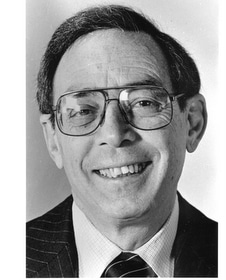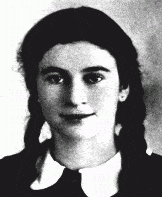Wisconsin’s ongoing protests provide many interesting lessons for a former advocate-turned deliberative practitioner. How does a facilitator/alternative dispute resolution professional come to find himself carrying a sign and singing songs of solidarity? Was I, as some friends suggested, a retired cavalry horse in the pasture who jumped the fence at the call of the bugle? Or was I, along with my graying peers from the antiwar and civil rights struggles of the past, a member of an unconscious reserve unit of rabble-rousers responding to electronic Paul Reveres on the internet?
What is the role of the “neutral” in circumstances such as Wisconsin’s? The answer is likely different for different practitioners, but I’d like to explain why I find it difficult to be “above it all” in the current circumstances. And I think it is worthwhile to mention what contributions deliberative practitioners can make in such circumstances, even as they “take a side”.
When I retired after 25 years as a labor union staffer I had had my fill of strife, complaints, and the always pressing “problems” requiring immediate attention. The deliberative world to which I turned offered some respite from that stress and opportunities to match my disposition to longer-term thinking and holistic approaches. Hopefully, my practical experiences in governance and policy development allow me to contribute to deliberative efforts.
I could easily fill page after page with background material on the stories behind the main protest story. But eyes tend to glaze after a few paragraphs of fiscal policy history. I know most of the principals in the controversy and in the 1980s, 1990s, and early 2000s I was often in room when the duct tape and band aids were applied to Wisconsin’s public sector to permit it to provide all that people want, but don’t like to pay for. Some might go as far as to say that I was part of the problem.
I believe in a very robust public sector, with agencies funded at levels that make the accomplishment of their assigned tasks more likely than not. At the same time I concede that reasonable people can disagree about how much they want in the way of public services and how much they are willing to pay for them. If that was the only issue behind the Wisconsin controversy there would not be tens of thousands of people involved in the protests. I might have showed up with a sign calling to preserve Badgercare/Medicare coverage for a couple hours on a Saturday. That’s not what has kept people at the Capitol through snow and freezing rain.
What has kept me involved for many days over three weeks are two fundamental battles I see waged here in Wisconsin. First, the struggle to prevent destruction of public sector labor unions through gutting of collective bargaining. Second, the pushback against subversion of Wisconsin’s progressive traditions through the influence of well-financed outside interests. The two issues are intimately connected and represent an openly-proclaimed agenda for the Koch Brothers and other ultra-rightwing business interests. In their minds, Wisconsin must be “brought to heel” and made friendlier to their economic interests, much like American business likes to tame banana republics.
These are goals this deliberative practitioner cannot sit still for. The destruction of collective bargaining rights are as troubling to me as if a politician proposed to repeal civil rights laws or women’s rights to vote. The corrosive influence of corporate money in campaigns threatens my very notion of democracy. Both ultra-right agenda items seem calculated to reduce the participation and the influence of other voices in American discourse. So there I am at the Wisconsin State Capitol with my sign.
I know for certain that I am not the only deliberative practitioner who has faced these issues. I see them with their signs too. Interesting conversations among them have developed as stories are swapped about how dialogue can be improved while a whole lot of shouting is going on. The scope of these protests is so wide and the spin-offs so numerous that I cannot claim to offer a definitive account. But I can offer some vignettes of what people of good faith and deliberative disposition try to bring in the midst of the tumult:
- Given that there are a good number of unionized teaching assistants deeply involved, it is quite natural that “teach-ins” would develop in conjunction with the protests. These have often been evening events as daytime protests take a break and they have explored general democracy topics and the people’s revolts in the Middle East.
- Nearby churches and other public spaces have hosted lectures, films, and presentations that are followed by very vigorous discussion.
- Many deliberative practitioners mingle with the protest and offer calming influence in the relatively rare confrontations that have developed with small contingents of Tea Party counter-protesters. There are also a number of community meal discussions, free massages, yoga sessions, and general “vibe checks” that have become part of the “practice” of some sectors of the protest.
- Frequent rejoinders not to demonize all opponents of the protest. It is generally thought that Governor Walker, as originator of the dispute, is fair game (indeed he seems to relish venom directed his way), but a scared elderly person having difficulty with property taxes is not “the enemy”.
- Extensive “fact-checking” efforts on websites and social media to counter rumors and to keep the protest in a good emotional space.
- Increased presence by clergy and spiritual practitioners to “witness”, pray, and assist where needed.
- Use of typical Wisconsin humor: “The Cheddar Revolution”.
Those who have only seen the protests on Fox News might think that Wisconsin is in the throes of month-long rioting. I have been attending things like this since the 1960s and it is very self-disciplined and calm.
It has made me appreciate how even a highly charged event can act to create discussion space, if people who value dialogue look for the opportunities and listen to the many types of conversation going on. Events like this have multiple narratives that the media misses. It has also helped me appreciate how deliberative practitioners can position themselves at the eye of the storm to offer reflection, insight, and possibilities for the future.



